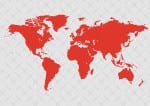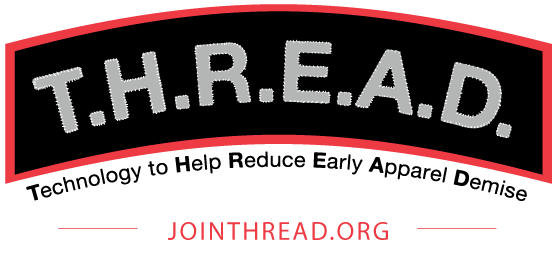California Transparency in Supply Chains Act of 2010
Effective January 1, 2012, the California Transparency in Supply Chains Act of 2010 (S.B. 657) requires companies that sell goods in California to make certain disclosures regarding their efforts to address slavery and human trafficking. The law is primarily intended to ensure consumers have access to detailed information about the human rights practices behind the production of goods that they buy, to assist in buying decisions.
American & Efird LLC holds itself and its suppliers to the highest ethical standards, and maintains a strong and comprehensive social compliance program including a Global Code of Conduct enforced at all of its worldwide operations. American & Efird LCC has zero tolerance for slavery and human trafficking and in an effort to fulfill the requirements of the California Transparency in Supply Chains Act provides the following:
American & Efird LLC (“A&E”), strongly support[s] the aims of the California Transparency in Supply Chains Act of 2010 (S.B 657) and expects its associates, contractors, suppliers and business partners to comply with all applicable legal requirements regarding human rights and labor practices.
The United Nations Geneva Convention (1926), defines slavery as “the status or condition of a person over whom any or all of the powers attaching to the right of ownership are exercised. The slave trade includes all acts involved in the capture, acquisition or disposal of a person with intent to reduce him to slavery; all acts involved in the acquisition of a slave with a view to selling or exchanging him; all acts of disposal by sale or exchange of a slave acquired with a view to being sold or exchanged, and, in general, every act of trade or transport in slaves.”
The United Nations in the 2000 Protocol to Prevent, Suppress and Punish Trafficking in Persons, Especially Women and Children, defines human trafficking as “the recruitment, transportation, transfer, harboring or receipt of persons, by means of the threat or use of force or other forms of coercion, of abduction, of fraud, or deception, of the abuse of power or of a position of vulnerability or of the giving or receiving of payments or benefits to achieve the consent of a person having control over another person, for the purpose of exploitation. Exploitation shall include, at a minimum, the exploitation of the prostitution of others or other forms of sexual exploitation, forced labor or services, slavery or practices similar to slavery, servitude or the removal of organs.”
A&E is committed to preventing slavery and human trafficking throughout its supply chain, which includes its global manufacturing and distribution facilities. Specifically, A&E’s policies are as follows:
Verification of Supply Chain: A&E relies on its vendors and suppliers, many of whom it has done business with for decades, to comply with applicable laws in the jurisdiction in which they operate. For significant suppliers, A&E requires annual written confirmation to verify that the suppliers are meeting A&E’s expectations and requirements. Suppliers are also periodically visited by A&E personnel on a scheduled basis.
Audits: At its larger suppliers’ facilities, A&E conducts periodic scheduled on-site visits to verify that the suppliers are meeting A&E’s expectations and requirements, including its commitment to anti-slavery and anti-human trafficking. Smaller suppliers are also periodically visited by A&E personnel for scheduled on-site reviews. Our on-site reviews are pre-announced and are performed by A&E personnel.
Certification from Direct Suppliers: A&E’s direct suppliers are expected and required to comply with the laws regarding slavery and human trafficking in the countries in which they are doing business and provide written certification of compliance to A&E.
Accountability: A&E maintains the right to investigate and discipline or terminate business relationships with any associate, contractor or vendor failing to meet A&E’s expectations or any legal requirements related to slavery and human trafficking.
Training: Beginning in 2012, A&E will provide company associates and management who have direct responsibility for supply chain management with periodic training consisting of dissemination and acknowledgement of our policy against slavery and human trafficking in out supply chain, particularly with respect to mitigating risks within the supply chains of products.
For more information about our Global Code of Conduct or to download a copy, please click here.




